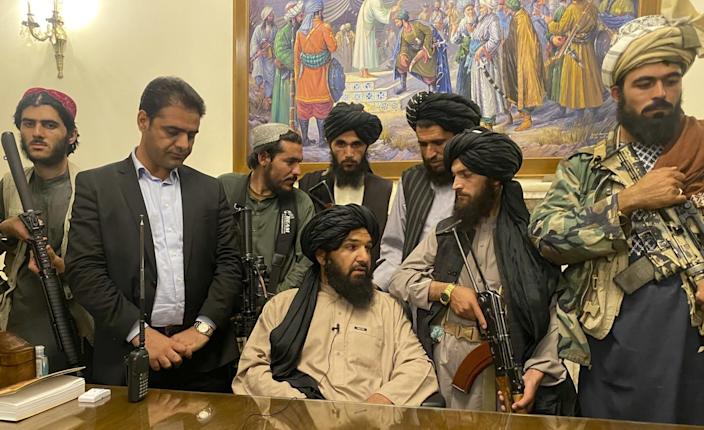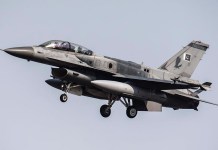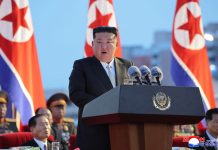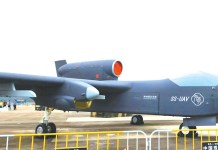As the battle-hardened Taliban take control of the state affairs in Kabul, there are reports of dreaded terrorist groups Al Qaeda and Daesh (the Islamic State) making attempts to expand their base in Afghanistan.
- Chinese J-20, Russian Su-57 Racing To Develop World’s 1st Stealth Fighter Jet With ‘Super Capabilities’
- Dream Come True For Aviation Enthusiasts As Microsoft Develops Platform To ‘Fly’ World’s Most Powerful Fighter Jet – F-35B
Afghanistan’s permanent representative to the UN, Ghulam M. Isaczai, told the United Nations Security Council that 20 terrorist groups — including the Al Qaeda and the Islamic State of Iraq and the Levant (ISIL) — have been fighting alongside the Taliban.
He mentioned that since mid-April, they have launched more than 5,500 attacks in 31 of the 34 Afghan provinces.
This “newfound unity” amongst these groups, alongside longstanding US intelligence assessment that Al Qaeda’s core group is likely to reconstitute itself within 18 months to 2 years of US withdrawal, is cause for big worry for neighboring nations.

More alarming is the fact that Daesh has estimated financial reserves of $25-50 million, and that they’re recruiting and training new supporters to expand a membership that according to some estimates, stands somewhere between 500 and 1,500 fighters.
It is feared that it may rise to around 10,000 people in the medium term.
Meanwhile, US President Joe Biden has said that American troops may stay in Afghanistan past an August 31 deadline to “evacuate” their citizens.
Can ISIS & Taliban Coexist?
Opinion on whether the Taliban’s victory will fuel the rise or cause the demise of the Islamic State of Khorasan Province (ISKP), the self-proclaimed Afghan branch of the ISIL, is divided.
John Bolton, who had served as the national security adviser under President Trump, tweeted, “It seems inevitable that the Taliban will allow al Qaeda, ISIS, and other terrorist groups we haven’t even heard of yet to find sanctuary in Afghanistan.”
Peter Neumann, a professor of security studies at King’s College London, commented on a different kind of support that the ISKP and other Islamist radicals across the globe are likely to derive from the Taliban- “a much-needed boost” of morale.
The supporters of Al Qaeda are already celebrating this victory over the US on social media, rejuvenating their hope of forming the Islamic Caliphate.

However, voices decrying the Taliban allowing the Islamic State (IS) to broaden its base in the country are much stronger.
Professor Neumann believes that the Taliban will steer clear of the ISKP due to the global, but more specifically, the US hostility towards them. Supporting the IS will be interpreted as allowing terrorism to thrive, which will intensify the risk of a US intervention again.
Besides, there is a more rigid, historical rivalry between the two groups which indicates that the Taliban will not cooperate with Daesh. Even though both are violent Sunni Islamist extremists aiming to form authoritarian states under the Sharia law, they have been enemies who have fought bitterly.
Bitter Enemies
When Daesh established the ISKP in the Nangarhar Province of eastern Afghanistan in January 2015, it recruited defectors from the Taliban, specifically those who were dissatisfied with its leadership.
Taliban leader Mullah Akhtar Mohammad Mansour wrote a letter to ISIS leader Abu Bakr al-Baghdadi, asking for the Islamic cause in Afghanistan to take place under Taliban leadership. The tensions intensified within the Taliban as well as with ISKP.

Several fights concerning territorial control broke out over the years. Finally, in July 2017, the Taliban launched an attack to drive ISKP out of the region, culminating in the latter facing a significant defeat. A weakened ISKP was then almost completely eradicated by the U.S. military and Afghan forces in 2019.
It is unlikely that the Taliban and ISKP will be able to easily cast aside this intense animosity and ideological differences that currently exist as well.
This is further corroborated by the fact that the former pledged to keep other Islamist extremists (including ISIS) out of the country in the peace accord signed at Doha, Qatar. While there isn’t much confidence in the Taliban being able to keep its word, it did point towards their attitude towards the ISKP.
Another view is that, as Taliban leaders begin governing and making compromises on certain issues, the hardliners might defect to ISKP, and that the IS militants might be able to use the country’s ungoverned spaces as hideouts.
Despite such speculations, it’s difficult to predict at this juncture how the Taliban leadership will handle the UN-designated terrorist organizations IS and Al Qaeda in the days to come.
Penned By Shreya Mundhra
More @ EurAsian Times
- US Experiments With ‘Revolutionary Air Combat Training’ For Fighter Pilots To Dogfight Russian, Chinese Jets
- Despite J-20 Stealth Jet, Why Is China Keen To Acquire Another Stealth Fighter – Russian Su-57 To Its Arsenal?




